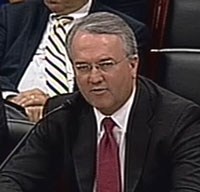 A new study seems to add credibility to the arguments that high corn prices, often driven by demand for biofuels, are not increasing the actual indirect land use effects.
A new study seems to add credibility to the arguments that high corn prices, often driven by demand for biofuels, are not increasing the actual indirect land use effects.
This press release from the Iowa Corn Promotion Board says researchers at North Carolina State University and the University of Illinois at Chicago found that as prices for corn go up or down, farmers adjust their per acre yields and that some commonly used models for indirect land use use factors at the low end of the actual range which underestimates real yield performance:
The study assessed two dimensions of this correlation known as yield-price elasticity: first, the extent to which realized yields tend to be influenced by planting-time futures prices; and second, the potential for in-season changes responding to significant price swings. The study found that not only do farmers respond to price from season to season, they also respond to price during the season in order to optimize productivity. “Based on these findings there is no question that price has an effect on yields,” stated Jay Lynch, a farmer from Humboldt, Iowa and board director for the Iowa Corn Growers Association. “And given the factors involved in achieving higher yields, such as investment in new equipment, it is likely that new, higher yields resulting from high prices are sustained even after prices drop.”
The study adds to the growing body of evidence that actual indirect land use effects are lower than current models indicate and assumptions that high corn prices do not positively affect yields and productivity are not supported by research.
“It is a logical conclusion that when economic opportunity through greater efficiency is identified, investment occurs and results in the efficiencies that are targeted,” stated Dr. Barry K. Goodwin, study co-lead and distinguished professor, Departments of Agricultural and Resource Economics and Economics “In row crop production higher prices trigger positive changes to operations such as investments in better equipment and technology, better navigation and information systems, and so forth. The investment and changes triggered by the higher prices accelerate yield growth so that farms produce more per acre to fully capitalize on the market opportunity of higher prices. It’s a logic stream that holds up on the farm as well as other industries.”
Researchers went on to say that the new information should give people a better understanding between the real relationship between biofuels and indirect land usage.
 A freshman Republican representative from Kansas today blasted higher ethanol blends during a House subcommittee hearing that focused on the Renewable Fuel Standard (RFS).
A freshman Republican representative from Kansas today blasted higher ethanol blends during a House subcommittee hearing that focused on the Renewable Fuel Standard (RFS).



 The
The  There have been rumors that EPA might attempt to scale back the RFS by 20% due to the deteriorating condition of the U.S. corn crop, but RFA officials say the statutory process relating to RFS waiver provisions make that unlikely to happen.
There have been rumors that EPA might attempt to scale back the RFS by 20% due to the deteriorating condition of the U.S. corn crop, but RFA officials say the statutory process relating to RFS waiver provisions make that unlikely to happen.





